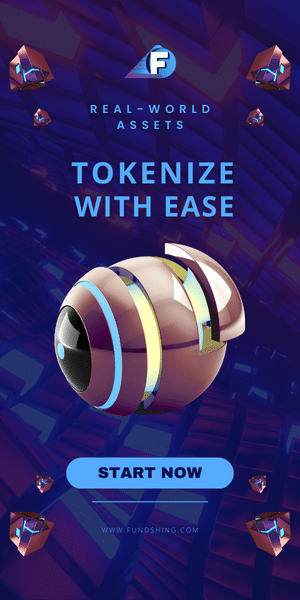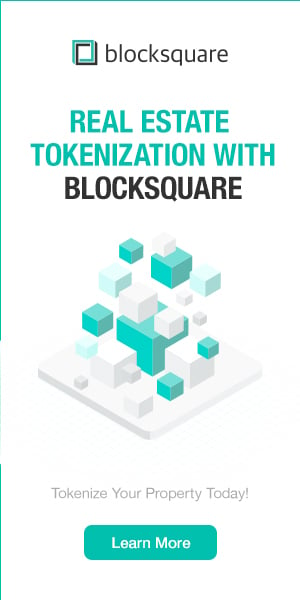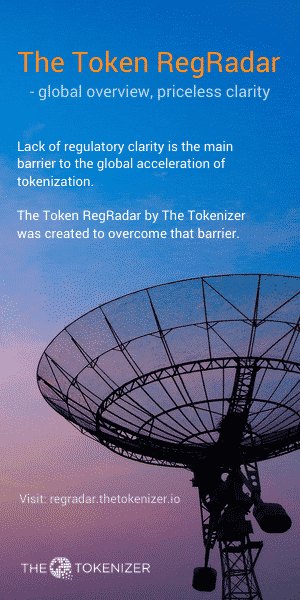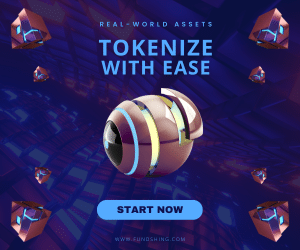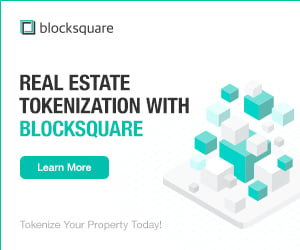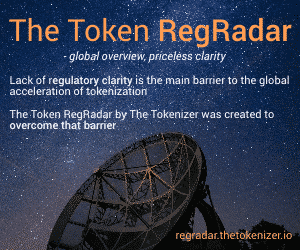Tokenization in Liechtenstein with EU passporting
By Nicolas Weber, Head of Business Development at Amazing Blocks, and Alireza Siadat, Partner at Annerton
Tokenization is slowly gaining momentum. In Liechtenstein, it is possible to tokenize shares in public limited companies directly. You need a few sentences in the articles of association, and it works. The other legal “workarounds”, as in other jurisdictions, are no longer needed. For example, one could now transfer property in Germany to a Liechtenstein AG via the land register. As a result, the tokens of the AG could be sent around the world within seconds using blockchain technology. Of course, KYC/AML rules have to be followed. But if this happens, one could indirectly disaggregate, distribute and transfer ownership of the German property. In this article, Annerton and Amazing Blocks collaborate to describe how tokenized assets in Liechtenstein can be traded in Germany using EU passporting, thanks to Liechtenstein’s membership in the European Economic Area (EEA). This significantly increases operational and regulatory efficiency. Thus, shares tokenized in Liechtenstein are also recognised as securities abroad. These are excellent conditions to tokenize equity and represent it with equity tokens. These progressive developments, coupled with the new legal certainty provided by the Liechtenstein Token Act (Act of October 3, 2019 on Tokens and VT Service Providers, Token and VT Service Providers Act; TVTG), pave the way for the emergence of a “Token Economy”. Annerton specialises in German (regulatory) legal issues regarding blockchain, while Amazing Blocks provides the necessary software for the tokenization lifecycle.
Since in Germany the token legal framework is not yet as advanced as it is in Liechtenstein, it is important to make clear how it is nevertheless possible to take advantage of tokenized equity and assets in Germany thanks to EU passporting. With Switzerland (as a non-EEA jurisdiction), another country has just recently followed suit with a similarly comprehensive draft law as Liechtenstein, which is another sign of the direction in which things are heading. Germany may also adapt its laws in the coming months as part of the introduction of an electronic securities law. But until that happens, it is also possible for German companies and investors to take advantage of tokenization under the TVTG. How tokenization works in Liechtenstein and how subsequently an EU passporting looks concretely are the subject of this article.
Tokenization explained
Tokenization can be defined as the digitised representation of an asset, including the rights and obligations contained in this asset and its transferability enabled by this. The digital mapping is usually implemented on a blockchain or another DLT.
In order to map an asset on a blockchain, so-called tokens are issued. Each of these tokens represents a certain share of the mapped asset. As a rule, a contract is drawn up for this purpose in which the rights and obligations arising from a token are defined (token agreement).
Tokens can be transferred digitally to another party with simultaneous transfer of all rights and obligations. It is, therefore, possible through tokenization to transfer individual assets digitally. If an asset is tokenized in a transferable and standardized manner, it is, according to BaFin’s assessment, an asset that is similar to securities and to which the German regulatory requirements for securities apply. The tokenized assets are, therefore, also called digital securities.
A good illustration for the tokenization of assets is the token container model of the TVTG, which will be explained later in this article. But how exactly does tokenization work? An asset is legally stored with a digital representation (token) on a blockchain. When tokenizing shares or equity, they are represented by equity tokens. When tokenizing debt securities, debt capital or bonds, these are represented by debt tokens.
Liechtenstein Token Act
In January 2020, new blockchain laws came into force in Liechtenstein with the TVTG. With this step, Liechtenstein has taken into account the development of a technology driven by the digital transformation, which will complement the physical world with a digital world. The Liechtenstein Token Act allows rights and assets to be tokenized.
In summary, this means that since January 2020, it has been possible to tokenize almost any right or asset. Unlike in Germany, for example, you can now actually tokenize equity in equity tokens – a unique selling point compared to the possibilities offered by other blockchain frameworks in Europe. The basis for this is provided by the Token Container Model, which will be described in more detail later in this article. For businesses and consumers, this means that any right and therefore any asset can now be tokenized in a straightforward manner, eliminating the need for complex workarounds. This legal certainty and the resulting standardized processes will significantly reduce the time required for tokenization processes. The development is of great importance on the way to a token economy.
In addition, Liechtenstein’s membership in the EEA ensures that EU passporting is opened for tokenized assets and that they are recognized for regulated distribution in other EU member states. Thus, it is now possible for any company to tokenize and endorse assets and assets by means of a Liechtenstein company and to distribute them in other states within the EU. This is presented in detail using the example of Germany in this article. Here it should also be noted that for the establishment of a Liechtenstein AG, initially no bank account is required. The required share capital can easily be deposited in the form of a contribution in kind, such as Bitcoin or Ether.
The Token Container Model
The aspect of the Liechtenstein Token Act that is particularly important for the tokenization of assets and rights is the Token Container Model. This model is ideally suited to symbolize the entire tokenization process. As is well known, a container in the conventional sense is loaded with goods of any kind. This is exactly how the container works in the Token Container Model. Only in this case the container symbolizes a token and this token can in turn be “loaded” with a right. This right represents a real asset such as the right to a property, a share or gold. With this approach, Liechtenstein separates the right, which stands for an asset, from the token, which is logged on a blockchain, so to speak.
This means that nothing changes with regard to the respective right and the associated laws. It just means that this right has now been transferred in a token (container) and can benefit from all the benefits of the blockchain. This possibility brings many advantages, such as increased and simplified transferability of rights and values. By means of this model, it is also possible to divide an asset into partial ownership. This offers investors new opportunities for risk diversification.
Tokenizing everything now possible?
In order to better illustrate the possibilities of tokenizing assets, some examples of tokenized assets will now be presented. At this point, it makes sense to start with the traditional stock corporation. With the Liechtenstein Token Act, one can tokenize the equity of a company and receive equity tokens as a result. These can then be held in a wallet. These are real tokenized shares and not digital twins.
Another sector that is also particularly interesting and will grow rapidly in the future is the tokenization of real estate. Here, the possibility of fragmenting property, in particular, is an exciting aspect. By tokenizing a property, one can divide it into any number of shares, even after the actual tokenization. In the end result: one holds equity in a property…. And these shares are packaged in a token by means of the token container model explained at the beginning. This makes them tradable on a secondary market, among other things. There are many individual applications for the tokenization of real estate. For example, it can be used to fundamentally change the financing of projects (crowdfunding) or investors can acquire parts of individual properties and are thus not forced to purchase an entire property if they want to invest in the real estate market. Tokenization will also offer some advantages for private real estate ownership, as completely new financing models are now available. For example, you could own 60% of your home and sell the remaining 40% through a secondary market, which in principle can work as a mortgage.
But the tokenization of exotic assets will also create new, alternative asset classes. For example, classic cars or works of art can also be tokenized. A small market already exists in these sectors, but tokenization can break open these closed and illiquid markets and make them accessible to a broader mass. The example of expensive paintings clearly shows how exclusive the circle of investors and owners often is. Even for professional investors, such investments are quickly unattractive because to have a balanced risk diversification, it is usually necessary to buy more than one painting. The same is true for classic cars. However, when these objects are tokenized, the possibility of partial ownership can again be benefited from. Thus, with the same sum with which a painting or a classic car is purchased, it is now possible to invest in 10 different objects. For private investors, in turn, it is then possible to invest in alternative asset classes with smaller sums at all. All in all, this will lead to an increased inflow of capital in the individual markets.
Tokenizing with service providers like Amazing Blocks
Implementing the promising opportunities offered by asset tokenization has always been very complex. To tokenize share certificates, real estate, classic cars or works of art, a multitude of legal, financial and technological hurdles had to be overcome until now. But thanks to the TVTG, it is now possible for companies like Amazing Blocks to offer simple and legally secure solutions. Amazing Blocks AG itself was the first company in Liechtenstein to tokenize its own equity shares. This was based on the establishment of a digital legal entity in Liechtenstein. The legislative package passed in Liechtenstein in January 2020, which ensures the security of ownership as well as the power of disposal over the tokenized units in the form of blockchain-based tokens, is the foundation on which Amazing Blocks’ software solutions are built. This uses the ERC-20 standard of the Ethereum Blockchain, which enables the highest possible fungibility of the tokens in the secondary market.
EU-Passporting with the example of Germany
Due to Liechtenstein’s membership in the EEA, it is possible to tokenize rights and passport them as securities sui generis via an approved prospectus with the Liechtenstein supervisory authority (Financial Market Authority, FMA) to other EEA states and thus also to Germany. This is based on the regulatory requirements of the Prospectus Regulation (Regulation (EU) 2017/1129 of the European Parliament and of the Council of 14 June 2017 on the prospectus to be published when securities are offered to the public or admitted to trading on a regulated market and repealing Directive 2003/71/EC), which are harmonised under European law. What is special about this is that here the Liechtenstein advantages under civil and company law of the TVTG can be combined with the regulatory single market approach. For EU passporting, it is necessary that the tokenized rights are first approved with a prospectus at the FMA.
In addition to the classic securities prospectus, a so-called EU growth prospectus can also be considered as a prospectus type, which allows for certain facilitations in prospectus approval for small and medium-sized companies – and thus especially for startups. The approval procedure is standardized throughout Europe thanks to the Prospectus Regulation. The content, scope and approval procedure are uniformly specified. The approval period is also specified, which provides a certain degree of planning certainty. If there are no reasons why the approval should not be granted, the passporting can be applied for at the same time as the approval. This is done in the same procedure and takes only two working days. As soon as the approval and the passporting have been confirmed by the FMA, the distribution of the issuer in the German market is possible.
The German regulator, Bundesanstalt für Finanzdienstleistungsaufsicht (BaFin), will not require any additional endorsement or permission. It should also be noted that while BaFin, like the FMA, assumes a dematerialized security sui generis – provided standardization and fungibility are given – the German jurisdiction had recently rejected the security sui generis from a civil law perspective in the Envion ruling. This could also encourage German issuers to carry out their tokenization projects in accordance with the TVTG requirements in Liechtenstein and then to passport them to Germany via the approval at the FMA.
Future outlook
If we take a look into the future, it becomes clear that this will be digital for asset classes. The legal hurdles that have prevailed to date in relation to the “token economy” can be overcome by applying the TVTG and targeted passporting, as described above. It is now possible to offer assets of any kind as “normal security” in the EEA, provided that the necessary legal protection has been obtained. Other jurisdictions may soon follow suit, with the federal government also working on a law for digital securities and individual states in the U.S., such as Wyoming also passing laws for compliant tokenization of securities.
Image by István Asztalos from Pixabay
More Articles:
DeFi and tokenization together reshape the financial system
Expanding the Token Economy: How To Democratize Access to NFTs and Tokenization
You Might also Like










